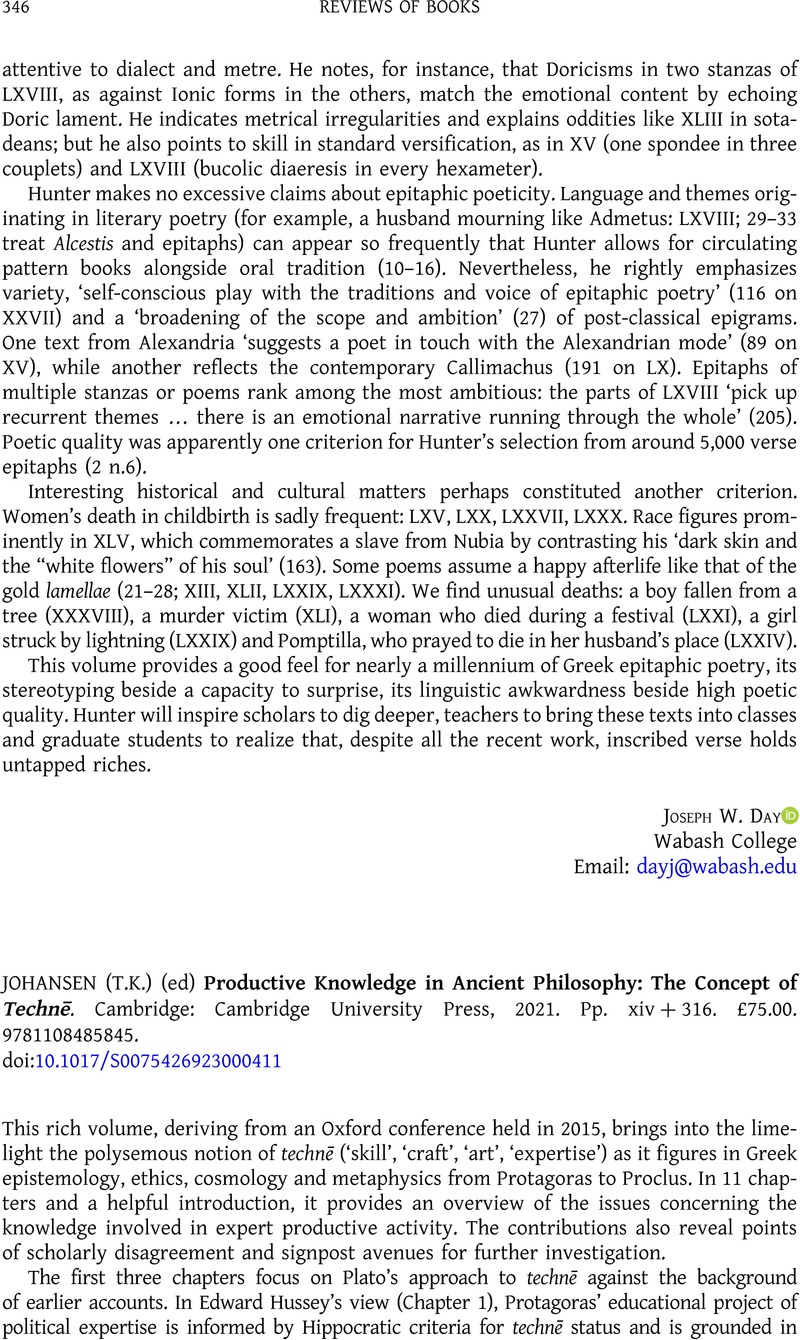No CrossRef data available.
Article contents
(T.K.) JOHANSEN (ed) Productive Knowledge in Ancient Philosophy: The Concept of Technē. Cambridge: Cambridge University Press, 2021. Pp. xiv + 316. £75.00. 9781108485845.
Review products
(T.K.) JOHANSEN (ed) Productive Knowledge in Ancient Philosophy: The Concept of Technē. Cambridge: Cambridge University Press, 2021. Pp. xiv + 316. £75.00. 9781108485845.
Part of:
Philosophy
Published online by Cambridge University Press: 26 April 2023
Abstract
An abstract is not available for this content so a preview has been provided. Please use the Get access link above for information on how to access this content.

- Type
- Reviews of Books
- Information
- Copyright
- © The Author(s), 2023. Published by Cambridge University Press on behalf of the Society for the Promotion of Hellenic Studies


